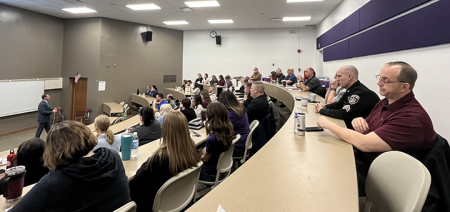I Put A Spell Check On You
Published:
October 10th, 2013
By:
Jim Mullen
You've probably heard that a bunch of new words have been added to the Oxford dictionary. Phablet. Unlike. Buzzworthy. Selfie. Twerk. Cakepop. If you haven't heard, you must not suffer from FOMO (Fear Of Missing Out), also just added. What puzzles me is, why you would be looking up any of those words in a dictionary?
You don't know what "twerk" means? Oxford's definition, "dance to popular music in a sexually provocative manner involving thrusting hip movements and a low, squatting stance," isn't that big of a help. You'd be better off looking it up on YouTube rather than in a dictionary. Well, you really won't be better off. As a matter of fact, you'll want to clean your eyeballs out and take a long shower to wash away the ickiness of it all, but you will be better informed about what the word means.
And, unless you're familiar with Facebook, to "unlike" something would be hard to explain, whereas it's easy to demonstrate. For some reason, "unfriend" is in the dictionary, but not "unsend," a word I use constantly after realizing I have sent a wildly inappropriate email to someone by accident.
How long before the language mavens wrestle "email" to the ground? The word is in most dictionaries. But they are still fighting over whether it should be "email" or "e-mail." Considering that one of their main jobs is to help us spell words correctly, that seems a bit of a bobble.
"Internet" is also in the dictionary now, but it's capitalized. Why? That seems very silly. I'd keep it lowercase. It'd be like capitalizing the word "phone." Srsly? That's also one of new words. As you've no doubt figured out, it means "seriously."
Which brings up the question, do they ever take words out of the dictionary? Groovy. Gofer. Bummer. Fuzz. Hooch. Fab. Moll. Dawg. Phat. Schwing. Wassup. Yadda yadda yadda. Or do they stay in there forever, like that funny smell in a man cave? The answer, I found out, is no, the Oxford English Dictionary never removes words once they make it in. Which you would know if you owned one, but very few people do. The 20 volumes of the printed version cost more than $1,000 on Oxford's website (and almost $7,000 in a deluxe, blue leather binding).
There is a cheaper, miniature edition printed in tiny text, which comes with its own handy magnifying glass. The online version costs only $300 -- a year. But these new words that make the news each year are just added to the ODO, the Oxford Dictionary Online. They may one day make it into the OED version, but they haven't yet.
But, as it turns out, I had no problem looking up any of the words used here for free with a quick search, so I'm not sure that the business model for dictionaries is here to stay. But the great thing is that an online dictionary could have a video link to "twerk" for free, or a 1,001 other things that are very hard to explain. It wasn't so long ago that saying something was "bad" meant it was good. Did that ever go in the dictionary? Yes. Did it ever come out? No.
What about words that have slang meanings that are almost past memory? "Heater" was slang for a gun. It's still in there, but with the note it's "dated." And words that used to mean one thing and can now mean another? "Guns" can mean "biceps." A computer used to mean a person who did math problems for a living, not a sophisticated machine. Businesses would hire computers, not buy them.
And dictionaries can't solve all word problems. A guy cut me off in traffic the other day, made an obscene gesture and yelled, "Yo mama!" at me. I looked up "your" and "mama," but I don't think that's what he meant.
Contact Jim Mullen at JimMullenBooks.com.
Author: Jim Mullen - More From This Author
Comments




